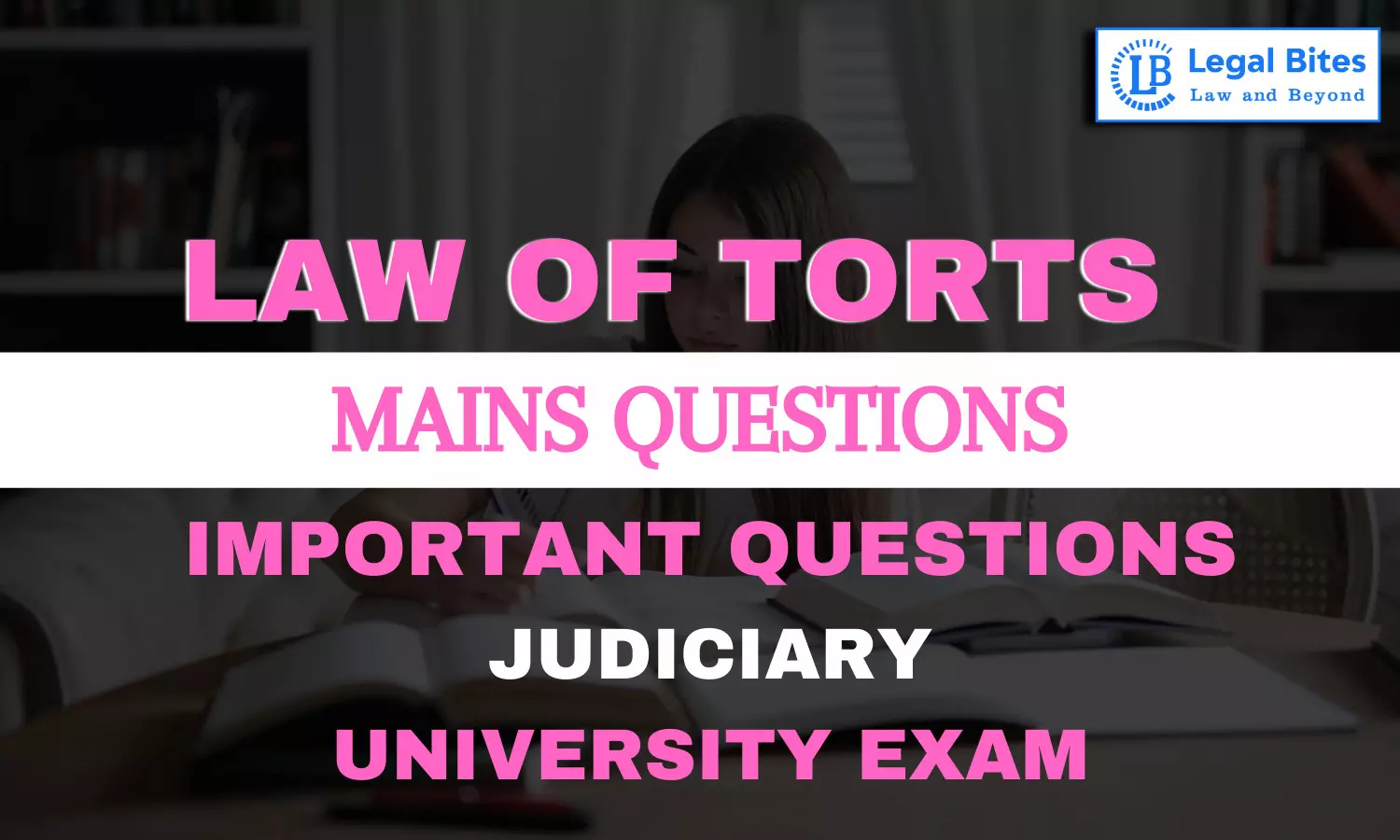"Prima facie everyone has the capacity to sue and be sued in tort, but there are certain persons who have no capacity at all or only a limited capacity." Who are these persons?
Find the question and answer of Law of Torts only on Legal Bites.

Question: "Prima facie everyone has the capacity to sue and be sued in tort, but there are certain persons who have no capacity at all or only a limited capacity." Who are these persons? [BJS 1991]Find the question and answer of Law of Torts only on Legal Bites. [Prima facie everyone has the capacity to sue and be sued in tort, but there are certain persons who have no capacity at all or only a limited capacity." Who are these persons?]AnswerIn General, the capacity to sue and be sued in...
Question: "Prima facie everyone has the capacity to sue and be sued in tort, but there are certain persons who have no capacity at all or only a limited capacity." Who are these persons? [BJS 1991]
Find the question and answer of Law of Torts only on Legal Bites. [Prima facie everyone has the capacity to sue and be sued in tort, but there are certain persons who have no capacity at all or only a limited capacity." Who are these persons?]
Answer
In General, the capacity to sue and be sued in tort is determined by the legal capacity of the person, which refers to their ability to enter into legal relationships, including the ability to enter into contracts, make decisions, and be held responsible for their actions. However, there are certain categories of persons who may have limited or no capacity to sue or be sued in tort. These categories include:
Minors: Minors are individuals who have not yet reached the age of majority, which is typically 18 years old. In most jurisdictions, minors have limited capacity to sue or be sued in tort, and they are generally required to have a guardian or parent act on their behalf. This is because minors may lack the maturity and judgment to make informed decisions and understand the consequences of their actions. However, in certain circumstances, minors may be able to sue or be sued independently of their guardians or parents.
Mentally incapacitated individuals: Individuals who are mentally incapacitated or have a mental illness that affects their decision-making capacity may also have limited or no capacity to sue or be sued in tort. In such cases, a guardian or appointed representative may be required to act on their behalf. This is because individuals with mental incapacities may not have the ability to understand the nature and consequences of their actions or to participate meaningfully in legal proceedings.
Corporations: Corporations are artificial legal entities that are created by law and have limited liability. While corporations can sue and be sued in tort, their liability is typically limited to the assets of the corporation, and the liability of individual shareholders and officers is generally protected. This means that while a corporation can be held accountable for its actions, individual shareholders and officers may not be personally liable.
Governments: Governments and government agencies may have limited liability in tort, depending on the jurisdiction and the nature of the claim. In many cases, governments are immune from liability for certain actions, such as those taken in the course of official duties. However, in certain circumstances, governments can be held liable for tortious actions, such as negligence or breach of duty.
Diplomatic agents: Diplomatic agents are individuals who are appointed by a foreign government to represent that government in another country. They are typically granted immunity from lawsuits and other legal actions in the country where they are serving. This is because diplomatic agents are protected by diplomatic immunity, which is intended to ensure that they can carry out their duties without fear of reprisal or harassment.
Overall, the capacity to sue and be sued in tort is determined by a variety of factors, including age, mental capacity, legal status, and the nature of the claim. While everyone has the potential to be held accountable for their actions in a court of law, certain categories of persons may have limited or no capacity to sue or be sued in tort, depending on the circumstances.
Law Library: Notes and Study Material for LLB, LLM, Judiciary, and Entrance Exams

Mayank Shekhar
Mayank is an alumnus of the prestigious Faculty of Law, Delhi University. Under his leadership, Legal Bites has been researching and developing resources through blogging, educational resources, competitions, and seminars.
